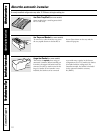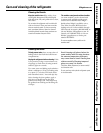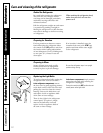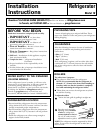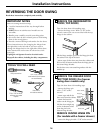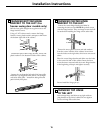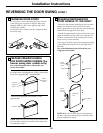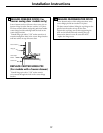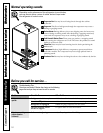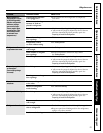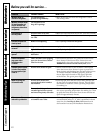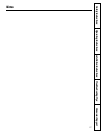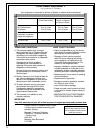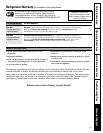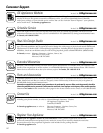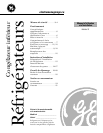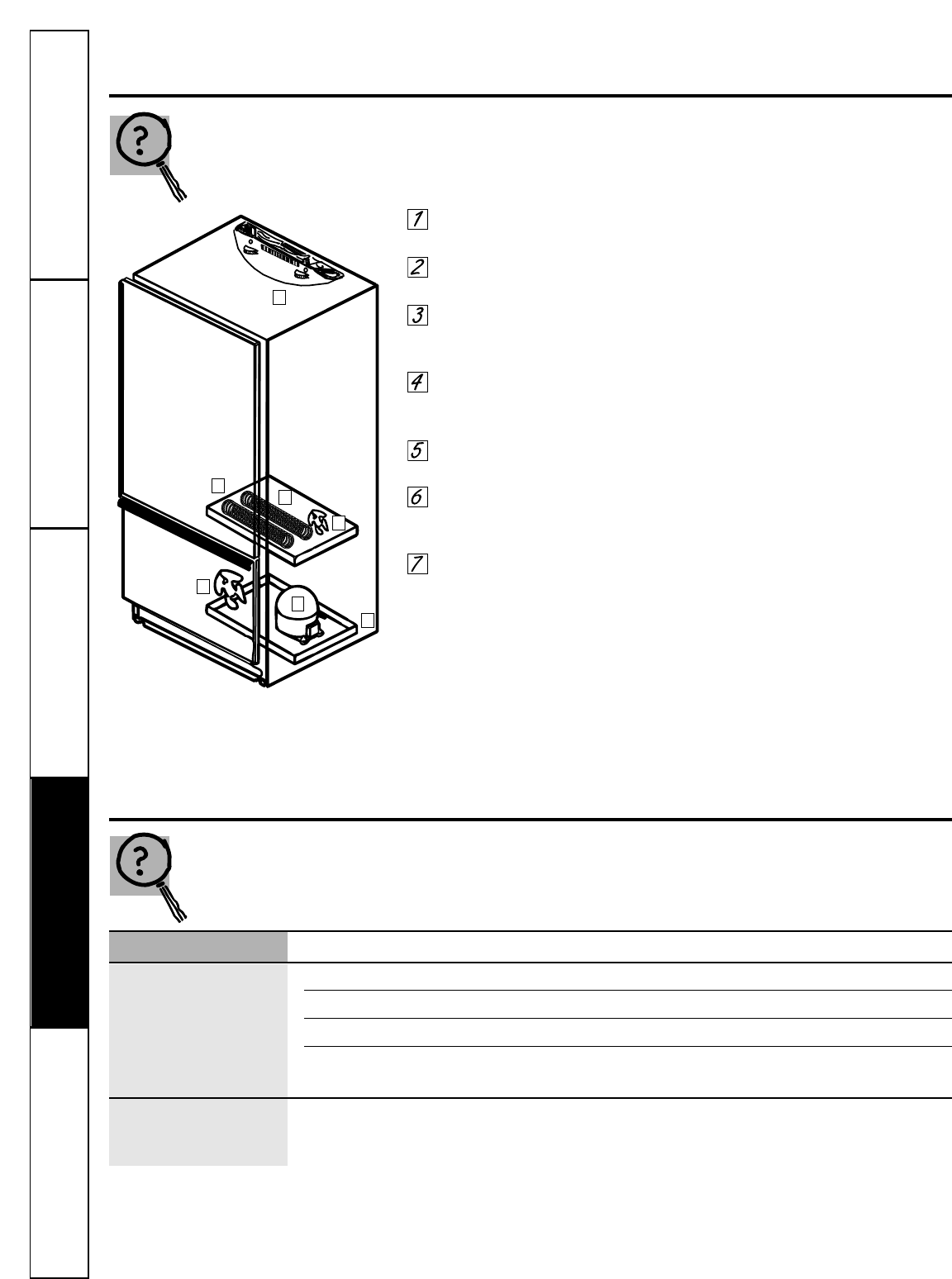
Consumer Support Troubleshooting Tips
Operating Instructions Safety InstructionsInstallation Instructions
Troubleshooting Tips
Installation Instructions Safety InstructionsOperating Instructions
Troubleshooting Tips
Installation Instructions Safety InstructionsOperating Instructions
18
Normal operating sounds.
Depending on the placement of the refrigerator in your kitchen,
you may want to place a piece of rubber backed carpet under
the refrigerator to reduce noise.
Evaporator Fan. You may hear air being forced through the cabinet
by the fan.
Evaporator. The flow of refrigerant through the evaporator may create a
boiling or gurgling sound.
Defrost Heater. During defrost cycles, water dripping onto the heater may
cause a hissing or sizzling sound. After defrosting, a popping sound may
occur and the evaporator may create a boiling or gurgling sound.
Cold Control & Defrost Timer. These parts can produce a snapping sound
when turning the refrigerator on or off. The timer also produces a sound
similar to an electric clock.
Water Pan. Water may be heard running into the drain pan during the
defrost cycle.
Compressor. Modern, high efficiency compressors operate much faster
than older models. The compressor may have a high pitched hum or
pulsating sound.
Condenser Fan. You may hear air being forced over the condenser by the fan.
Before you call for service…
Troubleshooting Tips
Save time and money! Review the charts on the following
pages first and you may not need to call for service.
Problem Possible Causes What To Do
Refrigerator does not Refrigerator in defrost cycle. •Wait about 45 minutes for defrost cycle to end.
operate
Control in OFF position. •Move the control to a temperature setting.
Refrigerator is unplugged. •Push the plug completely into the outlet.
The fuse is blown/circuit •Replace fuse or reset the breaker.
breaker is tripped.
Vibration or rattling Rollers need adjusting. •See Preparing to Install the Refrigerator.
(slight vibration
is normal)
1
2
3
4
5
6
7



